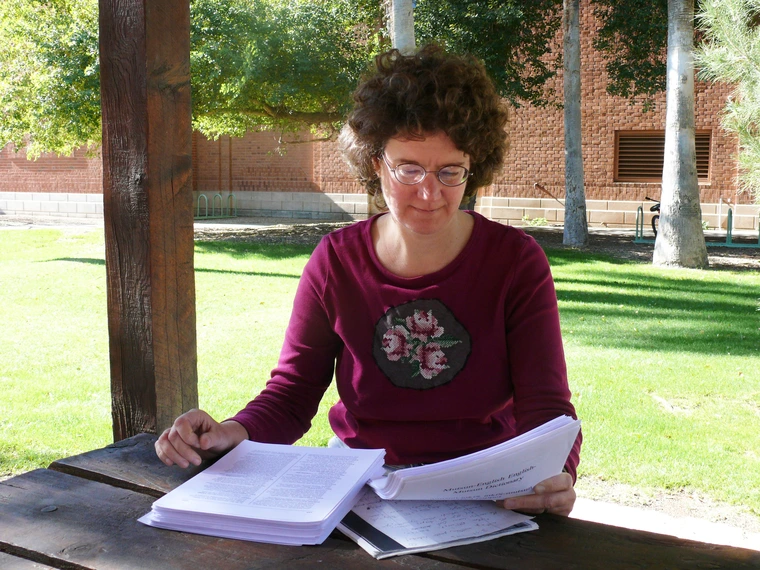Natasha Warner

I study the messy way people talk when they’re talking fast in casual conversation, where they leave out a lot of the sounds and even whole words. For example, in one of my group’s recordings, a speaker pronounced “gonna hafta” with just two syllables (sort of “got.tuh”), and in another, a different speaker pronounced “do you have time” as two syllables with no trace of the word “have” at all. Another speaker pronounced “Friday night” as one syllable, something like “freh…” stretched out in time. And yet these fast, “sloppy” pronunciations sound fine if you hear them in context, and are not hard to understand if you’re hearing your native language. What’s amazing is that this is actually how we communicate information. See the tab “Reduced speech examples” to hear some of these.
I also work with the Mutsun community of California, a Native American community from near San Juan Bautista CA, to try to help them learn their heritage language (Mutsun) and teach it in their community. The last person who learned Mutsun fluently as a child passed away in 1930, but there are a lot of written records of the language See the “Mutsun language revitalization” tab for that.
Linguist version:
My research is divided into two areas: phonetics/psycholinguistics/experimental phonology, and language revitalization. In phonetics, my main interest is production and perception of reduced, spontaneous speech, but I also work on other projects. In language revitalization, I work with the dormant Mutsun language of California (Southern Costanoan) on reclaiming the spoken language through learning from archival materials, primarily from J.P. Harrington. I have worked with Mutsun community members on publishing the dictionary and on language learning materials.

